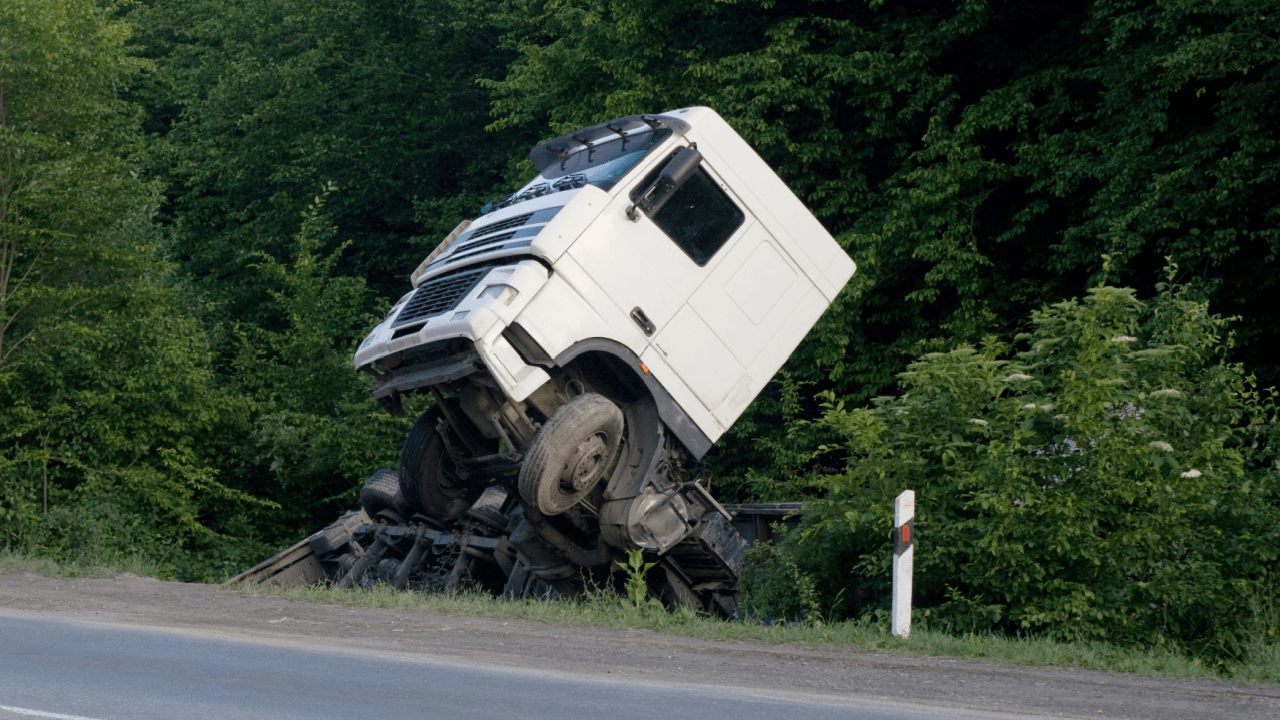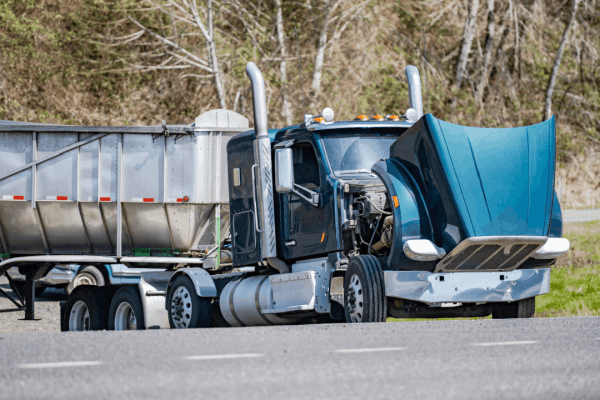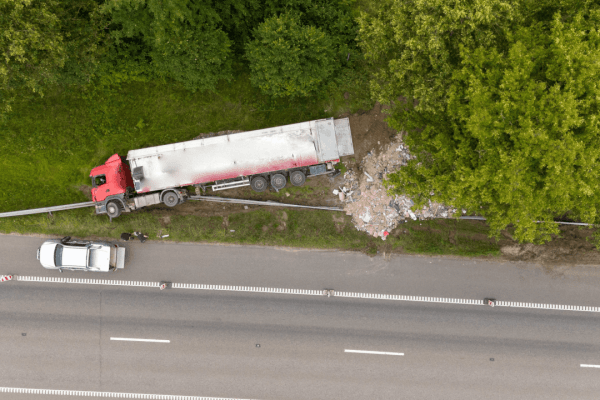
Your Complete Guide to Legal Representation After a Truck Crash
Why 18 Wheeler Accident Attorney Cases Require Specialized Knowledge
An 18 wheeler accident attorney brings essential specialized knowledge that general personal injury lawyers often lack when handling complex commercial trucking cases. Unlike standard vehicle accidents, truck crashes involve intricate federal regulations, multiple insurance layers, and corporate defense strategies that require years of focused experience to navigate successfully.
Commercial trucking accidents operate under an entirely different legal framework than passenger vehicle collisions. The complexity stems from federal oversight, corporate liability structures, and the devastating nature of injuries typically involved. These cases demand attorneys who understand both state personal injury law and federal transportation regulations.
Federal Motor Carrier Safety Administration Rules
The Federal Motor Carrier Safety Administration (FMCSA) governs commercial trucking through comprehensive regulations that don’t apply to regular drivers. These rules create additional liability opportunities but require specialized knowledge to leverage effectively:
- Hours of Service Regulations – Drivers must follow strict rest and driving time limits
- Electronic Logging Device Requirements – Mandatory tracking of driver hours and vehicle movement
- Driver Qualification Standards – Commercial license requirements, medical certifications, and background checks
- Cargo Loading and Securement Rules – Specific standards for weight distribution and load securing
- Drug and Alcohol Testing Programs – Random testing requirements and violation consequences
Immediate Steps Required – What to Do After an 18 Wheeler Accident Attorney Consultation
After consulting with an 18 wheeler accident attorney, taking immediate action becomes crucial for preserving evidence and protecting your legal rights. The first 48-72 hours following your accident often determine the strength of your case, as critical evidence can disappear quickly and insurance companies begin building their defense strategies immediately.
Your attorney will guide you through essential post-accident protocols, but understanding these steps helps you take appropriate action even before your initial consultation. Time-sensitive evidence preservation and proper documentation can make the difference between a successful claim and a denied settlement.
Evidence Collection Timeline
Critical evidence in truck accident cases has varying preservation windows that require immediate attention:
Immediate Actions (First 24 Hours):
- Photograph everything – Vehicle damage, road conditions, skid marks, traffic signs, and your injuries
- Collect witness information – Names, phone numbers, and brief statements while memories are fresh
- Document scene details – Weather conditions, lighting, construction zones, and traffic patterns
- Preserve your vehicle – Don’t repair or dispose of your damaged vehicle without attorney approval
- Request police report number – Obtain the incident report number and investigating officer’s information
Week 1 Priority Actions:
- Electronic data preservation – Trucking companies may only keep electronic logging device data for 6 months
- Surveillance footage requests – Nearby businesses and traffic cameras often overwrite footage within days
- Driver information collection – Commercial license details, employer information, and vehicle registration
- Initial medical treatment – Seek comprehensive medical evaluation even for seemingly minor injuries
- Insurance notification – Report the accident but avoid detailed statements without attorney guidance
Medical Records Documentation
Your medical documentation serves as cornerstone evidence for injury claims and requires careful attention to detail:
Comprehensive medical records should include:
- Emergency room visits and initial treatment records
- Diagnostic imaging results (X-rays, MRIs, CT scans)
- Physician notes documenting pain levels and functional limitations
- Physical therapy and rehabilitation records
- Prescription medication documentation
- Specialist consultations and treatment recommendations
- Mental health evaluations for trauma-related conditions
Insurance Communication Guidelines
Insurance companies begin investigating immediately, often contacting victims within hours of the accident. Your 18 wheeler accident attorney will provide specific guidance, but general principles include:
DO communicate these basics:
- Confirm the accident occurred
- Provide your contact information
- State you have legal representation
DON’T discuss these details:
- Fault or cause of the accident
- Extent of your injuries
- Your recollection of events
- Accept any settlement offers
Attorney Selection Criteria – How to Choose the Right 18 Wheeler Accident Attorney
Choosing the right 18 wheeler accident attorney requires careful evaluation of specific qualifications that separate experienced trucking lawyers from general personal injury attorneys. Not all personal injury attorneys are equipped to handle the unique challenges of truck accident litigation. The stakes are higher, the opposition is better funded, and the legal complexities require specialized knowledge that takes years to develop. Your attorney selection directly impacts your potential settlement amount and case outcome.
Experience Verification Methods
Essential Questions to Ask During Consultation:
- How many 18 wheeler accident cases have you handled in the past five years?
- What percentage of your practice focuses specifically on commercial trucking accidents?
- Can you provide specific examples of truck accident settlements or verdicts you’ve achieved?
- How familiar are you with FMCSA regulations and electronic logging device data?
- Do you have relationships with trucking industry experts and accident reconstruction specialists?
Verification Checklist:
- Case Results Documentation – Request specific examples of truck accident settlements and verdicts
- Professional Memberships – Look for membership in trucking trial lawyer associations
- Published Articles or Speaking Engagements – Evidence of recognized expertise in trucking law
- Client Testimonials – Reviews specifically from truck accident victims, not general personal injury cases
- Bar Association Standing – Confirm good standing and any disciplinary actions
Resource Requirements Assessment
Truck accident cases require substantial financial resources that many smaller firms cannot provide. Your attorney must have the capacity to fund comprehensive investigations and retain expert witnesses without compromising your case quality.
Critical Resource Requirements:
- Investigation Funding – Ability to hire accident reconstruction experts, obtain electronic data, and conduct thorough scene analysis
- Expert Witness Network – Relationships with trucking safety experts, medical professionals, and economic damage specialists
- Technology Access – Electronic logging device analysis capabilities and accident reconstruction software
- Support Staff – Paralegals and investigators specifically trained in trucking accident cases
- Financial Capacity – Ability to advance case costs without requiring upfront payment from clients
Fee Structure Evaluation
Transparent fee structures indicate professional integrity and help you understand the total cost of representation. Most reputable 18 wheeler accident attorneys work on contingency fees, but the details matter significantly.
Standard Contingency Fee Ranges:
- Simple cases: 33% of settlement amount
- Complex litigation: 40% of settlement or verdict
- Trial cases: 40-45% depending on complexity
Questions About Fees and Costs:
- What percentage do you charge for contingency fees?
- Do fees increase if the case goes to trial?
- Who pays for case expenses like expert witnesses and depositions?
- Are expenses deducted before or after calculating your fee?
- What happens to expenses if we don’t win the case?
Fee Agreement Essentials:
- Written Documentation – All fee arrangements should be clearly documented in writing
- Expense Responsibility – Clear understanding of who pays for investigation costs, expert witnesses, and court fees
- Cost Recovery – Whether expenses are recovered from settlement before or after attorney fees
- Payment Timeline – When and how fees are paid following case resolution
Case Value Factors – What Affects Your 18 Wheeler Accident Attorney Settlement Amount
Multiple complex factors determine your 18 wheeler accident attorney settlement amount, with truck accident cases typically yielding significantly higher compensation than standard vehicle accidents due to the severity of injuries and available insurance coverage. Understanding these valuation components helps set realistic expectations and ensures you pursue maximum compensation for your losses.
Settlement amounts can vary widely depending on the facts of the case, the damages involved, and the available coverage. However, your specific case value depends on demonstrable damages, liability strength, and your attorney’s negotiation skills.
Economic Damage Calculations
Economic damages represent quantifiable financial losses with specific dollar amounts that your 18 wheeler accident attorney can prove through documentation and expert testimony.
Primary Economic Damage Categories:
Damage Type | Calculation Method | Documentation Required |
Medical Expenses | Past and future treatment costs | Bills, treatment plans, expert medical testimony |
Lost Wages | Income lost due to injury | Pay stubs, employment records, tax returns |
Lost Earning Capacity | Reduced future income potential | Economic expert analysis, career projections |
Property Damage | Vehicle and personal property | Repair estimates, replacement costs |
Home Modifications | Accessibility improvements | Contractor estimates, medical necessity letters |
Assistive Devices | Wheelchairs, prosthetics, equipment | Medical prescriptions, device costs |
Pain and Suffering Valuations
Non-economic damages compensate for intangible losses that significantly impact your quality of life but lack specific dollar amounts. These damages often represent the largest portion of truck accident settlements.
Pain and Suffering Components:
- Physical Pain and Discomfort – Ongoing pain from injuries and medical treatments
- Emotional Distress – Anxiety, depression, and trauma-related psychological effects
- Loss of Enjoyment – Inability to participate in previously enjoyed activities
Valuation Methods:
- Per Diem Approach: Daily rate multiplied by recovery time
- Multiplier Method: Economic damages multiplied by a severity factor
- Comparable Case Analysis: Similar cases with known settlement amounts
Future Medical Cost Projections
Long-term care requirements substantially increase case values, particularly for catastrophic injuries common in truck accidents. Your attorney must prove future medical needs through expert testimony and comprehensive life care plans.
Future Medical Considerations:
- Ongoing Treatment Needs – Physical therapy, pain management, specialist consultations
- Surgical Procedures – Future operations, implant replacements, corrective surgeries
- Medication Costs – Prescription drugs required for life-long management
- Medical Equipment – Mobility aids, monitoring devices, therapeutic equipment
Investigation Process Explained – How Your 18 Wheeler Accident Attorney Builds Your Case
Your 18 wheeler accident attorney conducts a comprehensive investigation that goes far beyond typical car accident cases, utilizing specialized technology and expert analysis to uncover critical evidence that insurance companies hope remains hidden. This systematic approach often reveals violations and negligence that significantly strengthen your case and increase settlement values.
The investigation process typically takes 60-90 days to complete thoroughly, with time-sensitive evidence collection beginning immediately after your attorney’s retention. Each phase builds upon previous findings to create a complete picture of the accident circumstances and establish liability.
Electronic Evidence Collection
Modern trucking operations generate extensive electronic data that provides objective evidence of driver behavior, vehicle performance, and regulatory compliance violations.
Step-by-Step Electronic Evidence Timeline:
Week 1: Immediate Data Preservation
- Electronic Logging Device (ELD) Subpoena – Secure driver hours-of-service records before 6-month deletion
- GPS Tracking Data – Obtain vehicle location and speed information
- Engine Control Module (ECM) Download – Extract pre-crash vehicle performance data
- Fleet Management System Access – Review dispatch communications and route assignments
Week 2-3: Advanced Data Analysis
- Onboard Camera Footage – Request dash cam and driver-facing camera recordings
- Telematics Data Review – Analyze harsh braking, acceleration, and cornering events
- Communication Records – Examine driver cell phone and radio communications
- Maintenance System Data – Download vehicle diagnostic and repair history
Technology Tools Used:
- Crash Data Retrieval (CDR) Systems – Extract airbag control module data
- GPS Forensic Software – Map vehicle movement patterns and speed variations
- ELD Analysis Programs – Identify hours-of-service violations and data tampering
- Video Enhancement Technology – Improve quality of surveillance and dashboard footage
Driver History Investigation
Comprehensive driver background investigation often reveals patterns of unsafe behavior or employer negligence in hiring and supervision practices.
Driver Qualification File (DQF) Analysis:
- Employment History – Previous trucking jobs, termination reasons, reference checks
- Driving Record Review – Traffic violations, license suspensions, accident history
- Medical Certification Status – DOT physical exam results and medical condition disclosures
- Drug and Alcohol Testing – Pre-employment, random, and post-accident test results
- Training Documentation – Commercial driver training completion and safety education
Employer Negligence Indicators:
- Hiring drivers with disqualifying violations
- Failing to conduct proper background checks
- Inadequate driver training or supervision
- Pressuring drivers to violate safety regulations
- Ignoring previous safety violations or complaints
Expert Witness Roles:
- Trucking Safety Experts – Analyze federal regulation compliance and industry standards
- Accident Reconstruction Specialists – Determine crash causation and vehicle dynamics
- Human Factors Experts – Evaluate driver fatigue, distraction, and decision-making
- Mechanical Engineers – Assess vehicle defects and maintenance failures
Vehicle Inspection Protocols
Physical evidence from the truck and trailer often reveals mechanical failures, maintenance negligence, or cargo-related factors that contributed to the accident.
Comprehensive Vehicle Examination:
- Brake System Analysis – Inspect brake components for wear, adjustment, and failure
- Tire Condition Assessment – Examine tread depth, pressure, and wear patterns
- Steering and Suspension Review – Check for component failures or improper maintenance
- Cargo Securement Inspection – Verify load distribution and tie-down adequacy
- Lighting and Visibility Systems – Test all required safety lighting and reflective materials
Common Challenges Faced – Why 18 Wheeler Accident Attorney Cases Are Complex
18 wheeler accident attorney cases present unique legal complexities that distinguish them from standard personal injury claims, requiring specialized knowledge to navigate multiple jurisdictions, corporate defense tactics, and varying state laws. These challenges explain why general practice attorneys often struggle with truck accident cases and why specialized representation becomes essential for successful outcomes.
The complexity stems from the interstate nature of commercial trucking, sophisticated corporate structures designed to limit liability, and well-funded insurance defense teams that begin working immediately to minimize payouts. Understanding these challenges helps victims appreciate the value of experienced legal representation.
Jurisdictional Complications
Interstate trucking operations create complex legal scenarios where multiple state and federal laws apply simultaneously, often conflicting with each other and creating strategic challenges for case prosecution.
Multi-State Legal Issues:
- Accident Location vs. Company Headquarters – Different states may have varying liability laws and damage caps
- Federal vs. State Regulation Conflicts – FMCSA rules may override state trucking regulations
- Interstate Commerce Considerations – Federal jurisdiction requirements and interstate carrier regulations
- Venue Shopping Opportunities – Strategic forum selection for favorable legal environments
Corporate Defense Strategies
Trucking companies employ sophisticated legal strategies designed to minimize liability and shift responsibility away from corporate entities through complex business structures and aggressive defense tactics.
Common Corporate Shield Tactics:
- Independent Contractor Classifications – Claiming drivers aren’t employees to avoid vicarious liability
- Shell Company Structures – Using multiple corporate entities to limit asset exposure
- Equipment Leasing Arrangements – Separating truck ownership from operational responsibility
- Insurance Policy Layering – Complex coverage structures designed to minimize payouts
Defense Team Resources:
- Immediate accident scene investigation teams
- Specialized trucking defense attorneys
- Expert witnesses and accident reconstruction specialists
- Corporate risk management departments
- Substantial litigation budgets
Time Limitation Challenges
Statute of limitations variations create additional complexity, with different deadlines applying depending on jurisdiction, case type, and defendant characteristics.
State-by-State Variations:
State | Personal Injury Limit | Property Damage Limit | Wrongful Death Limit |
Texas | 2 years | 2 years | 2 years |
California | 2 years | 3 years | 2 years |
Florida | 4 years | 4 years | 2 years |
New York | 3 years | 3 years | 2 years |
Additional Time Pressures:
- Evidence Preservation Deadlines – Electronic data deletion after 6 months
- Insurance Claim Filing Requirements – Varying notification deadlines by company
- Government Entity Claims – Shortened notice requirements for municipal defendants
- Discovery Preservation Obligations – Immediate litigation hold requirements
Cost Structure Breakdown – What You’ll Pay Your 18 Wheeler Accident Attorney
Understanding the cost structure for your 18 wheeler accident attorney helps you make informed decisions about legal representation without worrying about upfront payments or hidden fees. Most reputable truck accident attorneys work exclusively on contingency fee arrangements, ensuring their interests align with maximizing your compensation recovery.
A contingency-fee arrangement generally means attorney fees are paid only if there is a recovery, making quality legal representation accessible regardless of your current financial situation. However, understanding the complete cost structure, including potential case expenses, helps set proper expectations about your net settlement amount.
Contingency Fee Calculations
Contingency fees vary based on case complexity, settlement timing, and attorney experience, with most 18 wheeler accident attorneys charging between 33% and 40% of your total recovery amount.
Standard Fee Structure Comparison:
Case Complexity | Pre-Litigation Settlement | Trial Settlement | Trial Verdict |
Simple Cases | 33% | 35% | 40% |
Complex Litigation | 35% | 40% | 40-45% |
Appeal Cases | 40% | 45% | 45-50% |
Fee Agreement Terms
Your fee agreement should clearly outline all financial arrangements, expense responsibilities, and payment calculations to avoid misunderstandings during case resolution.
Essential Fee Agreement Components:
- Contingency Percentage – Specific rates for settlement vs. trial outcomes
- Expense Responsibility – Whether expenses are deducted before or after fee calculation
- Cost Advancement – Who pays expenses during case progression
- Settlement Authority – Required approval thresholds for settlement acceptance
Expense Deduction Methods:
- Gross Recovery Method: Expenses deducted after attorney fees (benefits client)
- Net Recovery Method: Expenses deducted before attorney fees (benefits attorney)
Example calculations vary based on case expenses and the fee agreement terms:
- Gross Method: $500,000 – $165,000 (33%) = $335,000 – $20,000 = $315,000 to client
- Net Method: $500,000 – $20,000 = $480,000 × 67% = $321,600 to client
Settlement Timeline Expectations – When Your 18 Wheeler Accident Attorney Case Resolves
18 wheeler accident attorney cases typically require 12-24 months to resolve through settlement negotiations, with complex cases potentially extending to 3-4 years if trial becomes necessary. Understanding realistic timelines helps manage expectations while your attorney works to maximize your compensation recovery through thorough case development and strategic negotiations.
Case duration depends significantly on injury severity, liability complexity, and insurance company cooperation. While victims naturally want quick resolutions, rushing settlements often results in inadequate compensation that fails to cover long-term medical needs and lost earning capacity.
Pre-Litigation Phase Duration
The pre-litigation phase focuses on evidence gathering, medical treatment completion, and initial settlement negotiations before filing formal lawsuits, typically lasting 6-18 months depending on case complexity.
Pre-Litigation Timeline Milestones:
1-3 Months: Investigation and Evidence Collection
- Accident scene investigation and evidence preservation
- Electronic data retrieval from trucking company
- Medical treatment initiation and documentation
- Insurance company notification and initial contact
3-6 Months: Medical Treatment and Documentation
- Ongoing medical care and specialist consultations
- Diagnostic testing and treatment plan development
- Physical therapy and rehabilitation programs
- Medical improvement assessment and prognosis determination
6-12 Months: Demand Package and Initial Negotiations
- Medical treatment completion or maximum medical improvement
- Comprehensive demand letter preparation with damage calculations
- Initial settlement demand presentation to insurance companies
- Negotiation rounds and counteroffer evaluations
12-18 Months: Final Pre-Litigation Negotiations
- Medical expert consultations and case value refinement
- Final settlement demand adjustments based on updated information
- Insurance company final offer evaluations
- Decision point: accept settlement or proceed to litigation
Litigation Timeline Factors
Formal lawsuit filing extends case duration but often results in higher settlement amounts as insurance companies face increased legal pressure and litigation costs.
Litigation Phase Timeline:
18-24 Months: Discovery Process
- Lawsuit filing and defendant response periods
- Document production requests and responses
- Depositions of parties, witnesses, and expert witnesses
- Medical examinations and expert witness consultations
24-36 Months: Motion Practice and Case Development
- Summary judgment motions and legal argument briefing
- Expert witness report exchanges and challenges
- Settlement mediation attempts and judicial conferences
- Trial preparation and witness coordination
Factors That Accelerate Resolution:
- Clear Liability Evidence – Obvious trucking company fault reduces negotiation time
- Cooperative Insurance Companies – Reasonable insurers engage in good faith negotiations
- Complete Medical Treatment – Finished treatment allows accurate damage assessment
- Strong Documentation – Comprehensive evidence packages speed negotiations
- Experienced Legal Representation – Skilled attorneys achieve faster resolutions
Factors That Slow Resolution:
- Disputed Liability – Fault arguments require extensive investigation and expert analysis
- Multiple Defendants – Additional parties complicate negotiations and increase litigation complexity
- Severe Injuries – Catastrophic injuries require longer medical treatment and higher stakes negotiations
- Uncooperative Insurers – Bad faith tactics force lengthy litigation processes
- Complex Damages – Future medical needs and earning capacity calculations require expert analysis
Take Action Today – Get Your Free Case Evaluation
Don’t let insurance companies minimize your truck accident claim while evidence disappears and deadlines approach. The experienced 18 wheeler accident attorneys at TruckingAccident.com understand the complex regulations, corporate tactics, and investigation requirements that make these cases unique.
Why Choose Our Specialized Legal Team:
- Experience handling serious truck accident matters
- Comprehensive investigation resources and expert witness network
- No upfront costs – fees are typically contingent on recovery
- Available 24/7 for immediate case evaluation and evidence preservation
Get Started Now: Visit truckingaccident.com or call our toll-free hotline for your free, confidential consultation. Time is critical in truck accident cases – contact us today to protect your rights and discuss your legal options.
Frequently Asked Questions
1. How much does an 18 wheeler accident attorney cost?
Most 18 wheeler accident attorneys work on contingency fees, typically 33-40% of your settlement. You pay no upfront costs, and if you don’t win, you don’t pay attorney fees. Case expenses like expert witnesses and medical records may be your responsibility regardless of outcome.
2. How long do I have to file a lawsuit after an 18 wheeler accident?
The statute of limitations varies by state, typically ranging from 1-3 years from the accident date. However, evidence preservation should begin immediately, as trucking companies may only keep electronic logs for 6 months. Contact an attorney within days of your accident.
3. What makes 18 wheeler accident cases different from regular car accidents?
Truck accident cases involve federal regulations, multiple insurance policies, corporate defendants, and significantly higher damage amounts. They require specialized knowledge of FMCSA rules, electronic logging devices, and commercial insurance practices that most car accident attorneys lack.
4. Can I handle an 18 wheeler accident claim without an attorney?
While legally possible, it’s strongly discouraged due to case complexity. Trucking companies have teams of lawyers and investigators working immediately to minimize liability. Without legal representation, you’re unlikely to recover fair compensation for your injuries.
5. What evidence should I preserve after an 18 wheeler accident?
Critical evidence includes photos of the scene, vehicle damage, and injuries; driver information and trucking company details; witness contact information; police report numbers; and medical records. Your attorney will handle subpoenas for electronic logs, driver records, and maintenance files.
Key Takeaways
- Specialized Expertise Required: 18 wheeler accident cases demand attorneys with specific knowledge of federal trucking regulations, commercial insurance practices, and complex liability scenarios that differ significantly from standard car accident claims.
- Time-Sensitive Action Needed: Evidence preservation begins immediately after the accident, as trucking companies may only retain electronic logs for 6 months, making prompt attorney consultation crucial for case success.
- Multiple Defendants Common: Truck accident cases often involve various liable parties including drivers, trucking companies, maintenance providers, and manufacturers, requiring comprehensive investigation and legal strategy.
- Higher Settlement Potential: Due to commercial insurance requirements and severity of injuries, 18 wheeler accident settlements typically range significantly higher than passenger vehicle accidents, justifying specialized legal representation.
- Contingency Fee Structure: Most 18 wheeler accident attorneys work on contingency basis (33-40% of settlement), eliminating upfront costs and aligning attorney interests with maximizing your compensation recovery.



